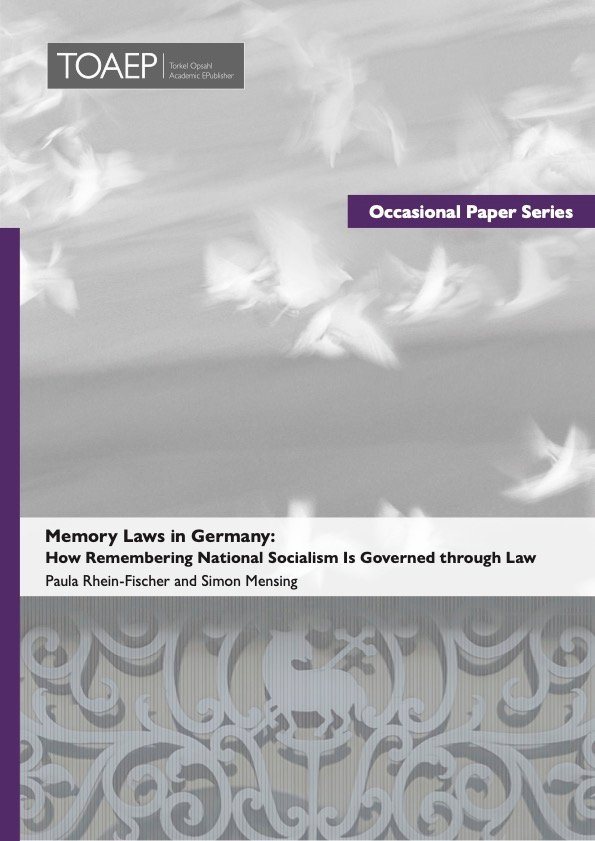
Dr. Paula Rhein-Fischer and Simon Mensing published the MEMOCRACY Country Study on “Memory Laws in Germany: How Remembering National Socialism Is Governed through Law“ in TOAEP
The case study focuses on German memory laws that allude to how the era of National Socialism is to be remembered in the present day. Germany adopted these memory laws in the course of its dealing with its Nazi legacy after decades of attempts to ‘draw a line’ under the past.
The study distinguishes three categories of memory laws. The first category refers to ‘explicit punitive memory laws’, which specifically relate to the Nazi past and provide for criminal sanctions. It includes, in particular, the offences of denial, approval and downplaying of the Holocaust and of glorification of the Nazi regime. Until the explicit Holocaust denial ban was introduced, Holocaust denial had been subsumed under incitement to hatred or the offence of insult. The legislator is currently about to introduce a more general ban on denial of genocide, crimes against humanity and war crimes where the statement is likely to incite hatred or violence. The second category of ‘explicit non-punitive memory laws’ includes only one statute, which allows for the restriction of assemblies at memorial sites. The third group, termed ‘quasi-memory laws’, gathers diverse provisions with a weaker mnemonic element. They again are divided into two sub-cat- egories, the first being non-specifically history-related laws that turn mnemonic purely through their applica- tion. For example, they include the offence of incitement to hatred, insult, and the prohibition of unconstitu- tional political parties. The second sub-category refers to other laws that aim to root the remembrance of the totalitarian past in society such as the legal framework for memorial days and sites.
Though most of these memory laws appear to comply with European standards, doubts arise in relation to the implementation of the European Union Framework Decision on racism and xenophobia of 2008. The planned expansion of pre-existing denial bans, which has been adopted by the German Bundestag in October 2022 and will still be dealt with in the Bundesrat, would remedy this shortcoming.
Finally, three particularities arising in the specific context of German memory laws and politics are exam- ined: the concept of militant democracy, the growing criticism of the current memory culture, and the ‘new right-wing’ populism.